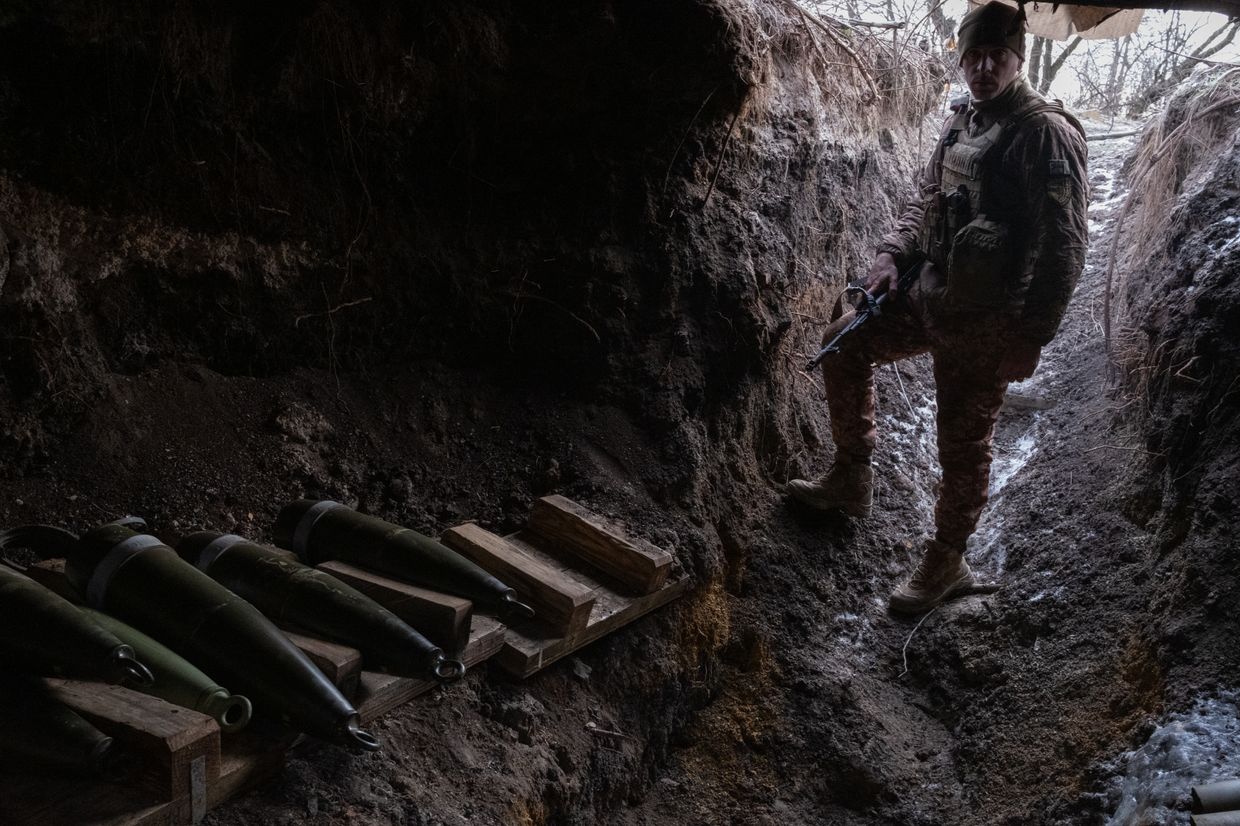FT: Europe exploring $1.5 billion backup plan to purchase shells outside of EU for Ukraine

European leaders are seeking alternative sources for artillery shells for Ukraine as a potential backup plan in case military aid from the U.S. continues to be held up in Congress, the Financial Times (FT) reported on Feb. 23, citing sources familiar with the plans.
Artillery shells are among the most crucial military supplies for Kyiv, as they are used daily in high numbers on Ukrainian battlefields. Ammunition shortages, in part stemming from the now months-long impasse of aid from the U.S., are said to be a key reason for the recent Ukrainian retreat from Avdiivka in Donetsk Oblast after months of fighting.
Czech President Petr Pavel said at the Munich Security Conference on Feb. 17 that the Czech Republic identified around 800,000 artillery shells in non-NATO countries that could be sent to Ukraine within weeks if provided funding from other partners.
The FT reported, citing unnamed officials, that the Czech Republic is ready to head up the initiative but needs help from European allies to secure the $1.5 billion in funding to purchase the shell stockpiles that have already been identified.
Unnamed sources told the FT that some EU countries have already contributed to the fund.
"The Czechs have done the work, but they need others to provide money," one person familiar with the plans told the FT.
"The Ukrainians couldn't care less where these shells come from, and who pays for them," an EU diplomat said.
"We're arguing over acronyms while they suffer on the front line."
The Canadian public broadcaster CBC News reported on Feb. 21, citing government sources, that Canada is prepared to contribute up to 30 million Canadian dollars ($22.3 million) to the initiative.
The FT reported earlier in February that Germany has voiced opposition to proposed reforms to the European Peace Facility (EPF), the EU's funding mechanism for sustaining European military supplies to Ukraine.
Currently, the EPF primarily functions on a reimbursement model, in which the EU refunds countries for military supplies they send to Ukraine. Germany, which has a substantial preexisting military-industrial complex, would like to see a change to the EU directly funding arms contracts.
Other countries, such as France and Greece, have said that EPF funds should only be used to purchase shells from other EU countries or Norway, which would be at odds with the proposed Czech plan.
The bureaucratic issues plaguing the EU's effort to procure shells, along with legislative deadlock in the U.S., have caused shell hunger among Ukrainian troops, especially in comparison with Russian forces, which have been bolstered by Russia's growing war economy and weapons imports from Iran and North Korea.













